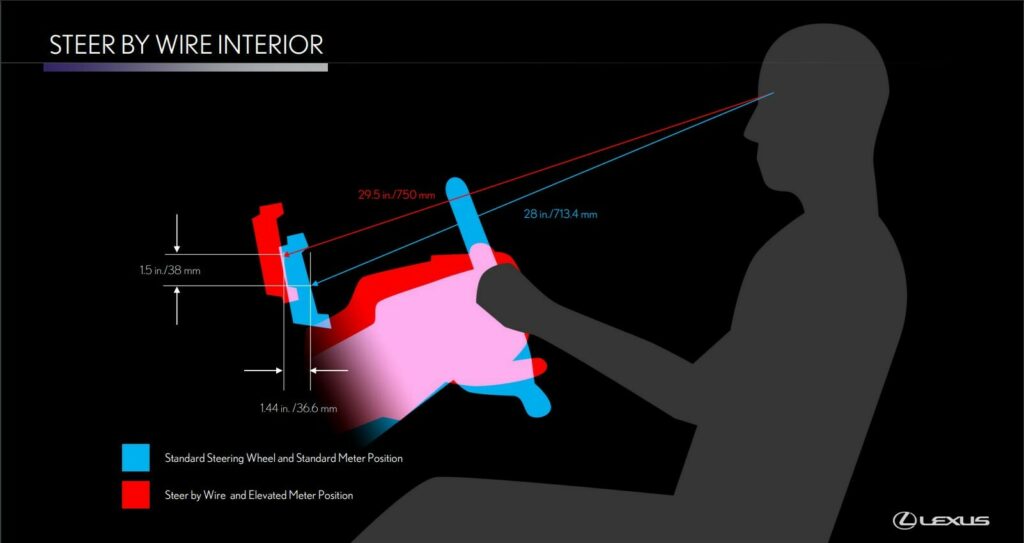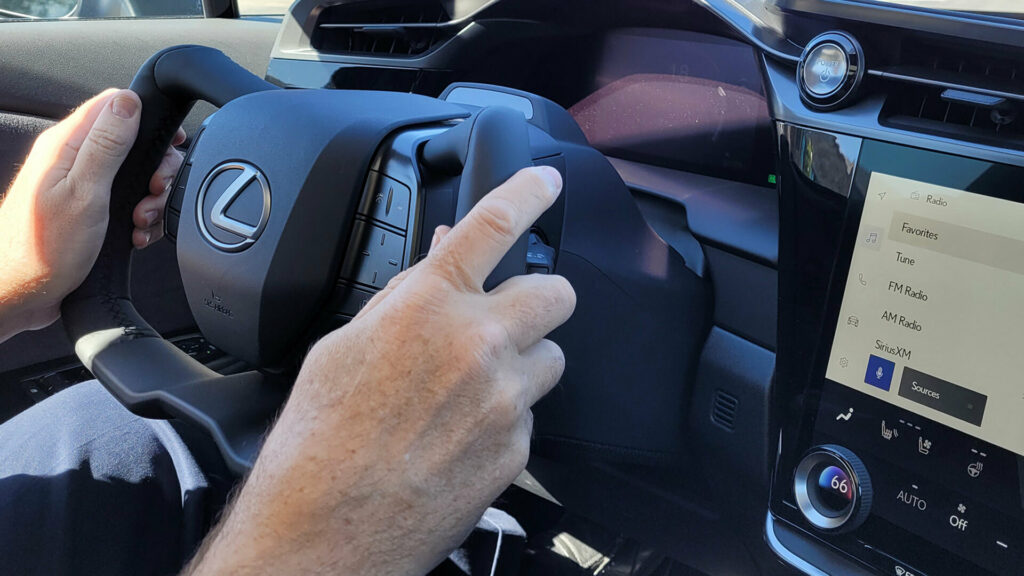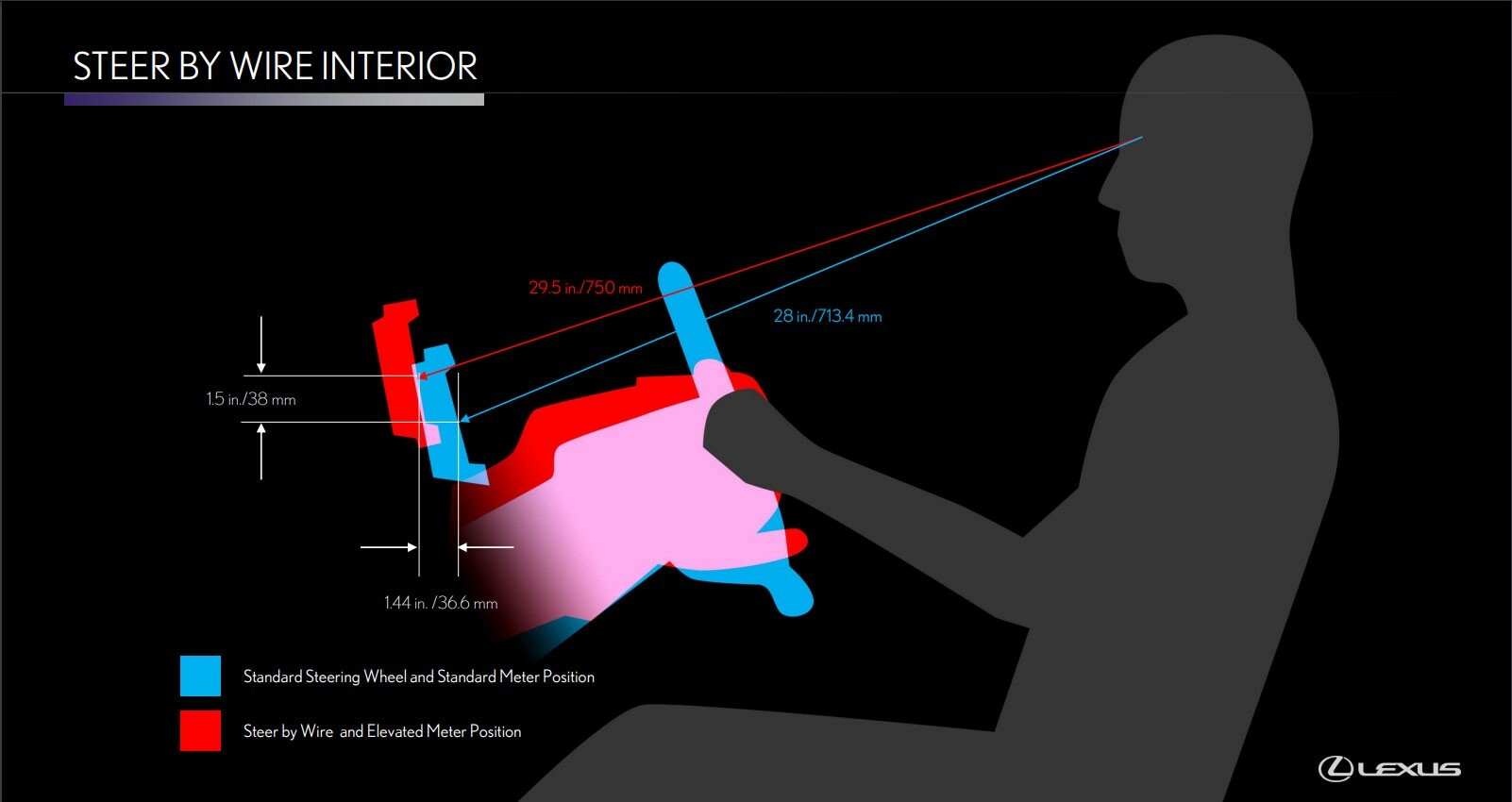The Lexus RZ plays it safe, but the crossover will eventually be offered with a Steer by Wire system that features a yoke steering wheel.
We recently took a spin in a prototype and I can’t recall laughing more during a test drive. Before we get too far ahead of ourselves, the Steer by Wire system replaces a mechanical linkage with electrical signals.
Steering inputs are registered and this information is fed to an actuator that controls the steering itself. The car also sends feedback to the yoke, so drivers have a sense of what’s going on.
Driven: The 2023 Lexus RZ Makes Going Electric EZ
That’s over simplifying things, but Lexus says the system “achieves maneuverable and confidence inspiring performance through precise judgment, by blocking out unnecessary vibrations from the tires and brakes.”
This is only part of the story as Lexus set the steering wheel’s lock-to-lock at approximately 150 degrees and this eliminates the need for hand-over-hand operation. In laymen’s terms, it makes the steering far more direct as even a slight movement can have a pronounced impact.
That being said, the steering ratio changes based on your speed. This is supposed to help improve maneuverability at low speeds in parking lots and garages, while keeping the car stable at higher speeds.
While this sounds nice in theory, it doesn’t exactly work great in practice. When driving slowly, it’s hard to gauge the amount of steering wheel input needed and this results in a twitchy ride that is far from pleasant. Things settle down at higher speeds, but it’s hard to be smooth and I took out a cone or two during my initial run.
That being said, there’s little doubt drivers will get accustomed to the experience over time. I only put in a few laps on a short course, so we’re definitely not writing off Steer by Wire quite yet.
Moving on, the yoke is bound to draw attention as it features a rectangular design as well as unique switchgear. The yoke feels comfortable enough, but turning a circle is much more natural than trying to rotate a rectangle.

While Lexus could have just installed the yoke and called it a day, engineers decided to go the extra mile and revamp the cabin to “encourage driver engagement and environmental awareness.” As part of this effort, the digital instrument cluster has been moved back 1.4 inches (36 mm) and raised by 1.5 inches (38 mm). The difference is notable and it’s much easier to see the cluster.
Lexus notes the yoke helps to improve entry and egress, but these weren’t problems to begin with. The yoke also seems slightly out of place in the RZ as the crossover is fairly conventional and doesn’t rock the boat. It’d be one thing in an LFA successor where space would presumably be limited, but here it feels unnecessary.
All that being said, we’ll hold off our final judgment until we get a little more time behind the wheel yoke.














